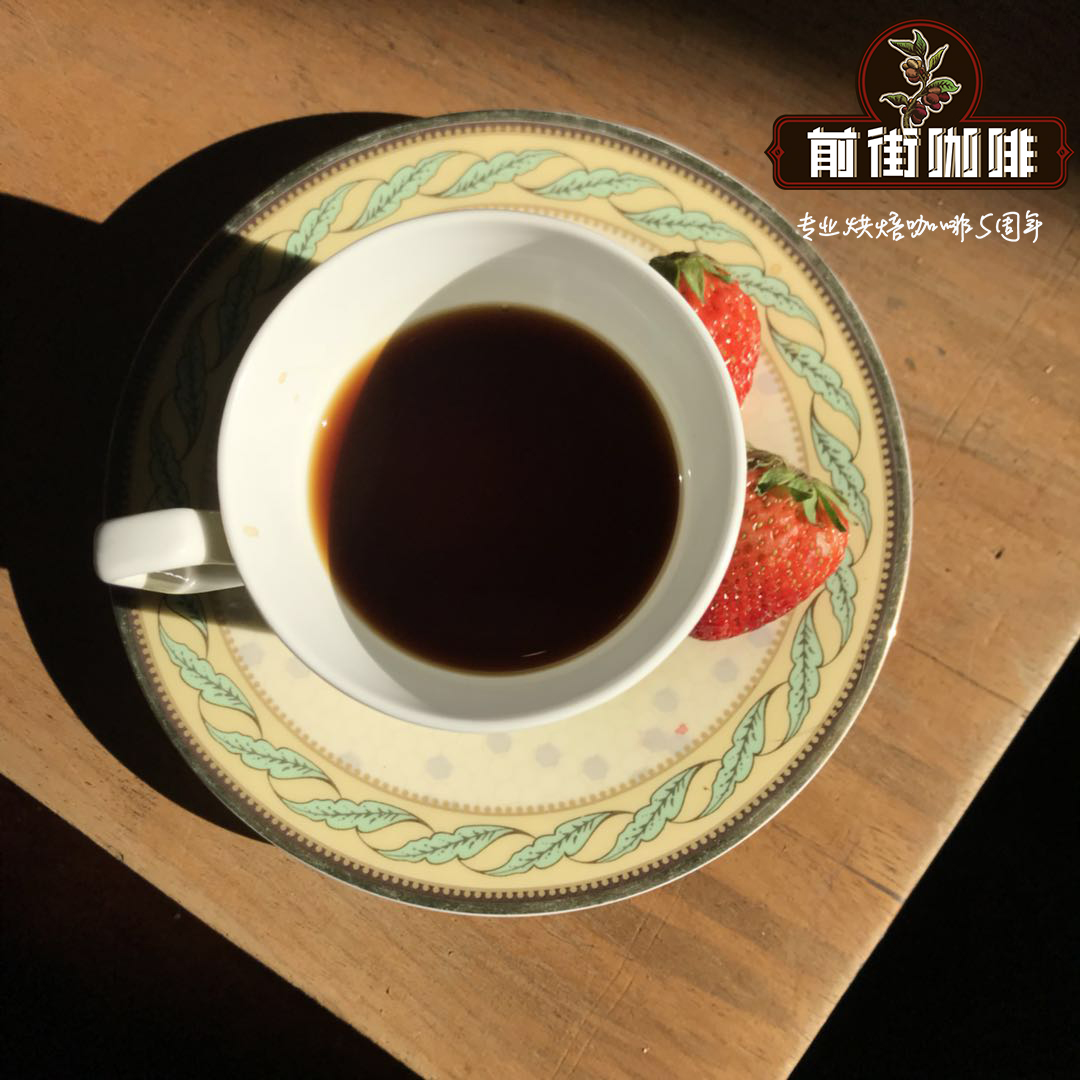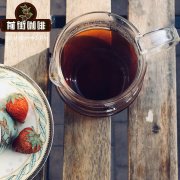How is Kenyan coffee graded? what are the characteristics of Kenyan coffee?

Professional coffee knowledge exchange more coffee bean information please follow the coffee workshop (Wechat official account cafe_style)
The coffee from Kenya has a very remarkable feature: high acidity and strong berry flavor. Kenyan coffee is famous for its acidity and enjoys a good reputation for its quality and industry practices. The best local coffee has multiple flavors, rich fruit aromas with berry flavors; the palate is deep and thick, full of aroma, and some varieties even have sweet and wine aromas.
Kenya is a model country for producing fine coffee beans. Kenya produces high-altitude Arabica water-washed beans, which are the top coffee beans in the world. Most coffee beans are graded by the Kenya Coffee Bureau and sold at auctions. Kenya Coffee Agency is strict in coffee research, development and quality management, and through an excellent auction system to raise coffee prices to help poor coffee farmers. And through agricultural education to continuously update and improve the planting technology of coffee farmers, and further produce better coffee. These coffee bean bags marked with [AA] represent top quality. The quality of Kenyan coffee beans is proportional to the price and is very stable. Kenya coffee with BlackBerry fruit flavor produces very little. These coffee beans are derived from fine coffee farms established by foreign companies in Kenya or fine coffee farms acquired by Kenyan companies, which are the targets of many coffee bean companies.
Located in Kenya below the equator of East Africa, the coffee beans planted are high-quality Arabica, thick and round in meat, and divided into seven grades according to the size of the beans, and the taste is divided into six grades from top to bottom. "Kenya AA" is highly praised and respected in the taste recommendation, with a slightly sour and thick fragrance, which is very popular among Europeans, especially in Britain. Kenyan coffee has surpassed Costa Rican coffee to become one of the most popular coffee.
Coffee entered Kenya in the 19th century, when Ethiopian coffee drinks were imported into Kenya through southern Yemen. But it was not until the early 20th century that the Bourbon Coffee Tree was created by the St. Austen Mission (St). Austin Mission) is introduced.
Kenyan coffee is mostly grown at an altitude of 1500m, 2100m, and is harvested twice a year. To ensure that only ripe berries are picked, people must tour the forest about seven times. Kenyan coffee is grown by small farmers. After they harvest the coffee, they first send the fresh coffee beans to the cooperative cleaning station. The washing station sends the dried coffee to the cooperative in the form of "parchment coffee beans" (that is, coffee beans covered with endocarp) to the cooperative ("parchment coffee beans" is the last state of coffee beans before peeling). All the coffees are collected together, and growers charge an average price according to their actual quality. This trading method generally works well and is fair to both growers and consumers.
The Kenyan government takes the coffee industry very seriously, where it is illegal to cut down or destroy coffee trees. Kenyan coffee buyers are world-class buyers of premium coffee, and no country can grow, produce and sell coffee on a continuous basis like Kenya. All coffee beans are first acquired by the Kenya Coffee Commission (coffeeBoard of Kaeya, CBK), where they are identified, graded, and then sold at weekly auctions, where they are no longer graded. The Kenya Coffee Commission only acts as an agent to collect coffee samples and distribute them to buyers so that they can determine the price and quality. The auction in Nairobi is for private exporters, and the Kenya Coffee Commission pays growers a price below the market price. The best coffee grade is bean berry coffee (PB), followed by AA++, AA+, AA, AB and so on. The fine coffee is shiny, delicious and slightly alcoholic.
Auctions are also organized to meet the needs of dispatchers. This kind of auction usually has a small auction volume (6 tons per case), with samples with the grower's logo for buyers to enjoy. After the auction, the exporters pack according to different flavors, different qualities and the quantity required by the blenders. This provides a great deal of flexibility for the dispatcher. Quality-conscious Germans and Scandinavians are long-term buyers of Kenyan coffee.
Internationally, the increase in the number of Kenyan coffee is obvious. From 1969 to 1970, 800000 bags were exported, and from 1985 to 1986, exports increased to 2 million bags. Now the yield is stable at 1.6 million bags, with an average yield of about 650kg per hectare.
Even before coffee prices skyrocketed in recent years, the average price of coffee in Kenya had been rising. Prices in 1993-1994 were 50 per cent higher than they were 12 months ago. The rise in prices is mainly the result of increased demand.
Some buyers, especially Japanese businessmen, have expressed dissatisfaction with the Kenyan coffee industry system. Some businessmen say that the quality of coffee in the country has declined, and point out that buying directly from farmers may be a way to improve the quality. But in any case, Kenya's detailed rules and regulations and sound procedures are a model for all coffee-producing countries.
Kenyan Coffee became more famous with the sensation of the Hollywood movie Out of Africa. In the film, Merrill. Karen, the heroine played by MarylStreep, is a writer and coffee planter. Many people may still remember the beautiful scenery and the magnificent sunset in the film, but what is even more unforgettable is Karen's dream of having a coffee plantation in Africa.
Kenyan coffee varieties include SL28 and SL34 as well as French missionary bourbon! And you can find all these kinds of coffee in the front street!
Qianjie Coffee recommends Kenyan coffee brewing parameters:
V60According 91-92 ℃ / 1 15 / time two minutes
Flavor:
Rich aroma of virgin fruit and sweet sucrose
If you know where the coffee beans come from, you can roughly predict their flavor, so most packages indicate the original bean producing areas with conspicuous capital headings. From Kenya to Colombia, the conditions of different coffee producing areas, such as climate, prevailing varieties and treatment methods, are very different, and these conditions are the key factors that determine the final flavor of coffee.
Important Notice :
前街咖啡 FrontStreet Coffee has moved to new addredd:
FrontStreet Coffee Address: 315,Donghua East Road,GuangZhou
Tel:020 38364473
- Prev

How do Kenyan coffee beans taste good? Characteristics of flavor and taste in coffee producing areas of Kenya
Professional coffee knowledge exchange more coffee bean information please follow the coffee workshop (Wechat official account cafe_style) the rare good coffee ── is famous for its rich aroma and balanced acidity. People in the coffee industry all think that Kenyan coffee is one of its favorite products, because Kenyan coffee includes me.
- Next

How do you drink Kenyan coffee? how is Kenyan coffee graded? How to brew Kenyan coffee
Professional coffee knowledge exchange more coffee bean information please follow the coffee workshop (Wechat official account cafe_style) Kenyan coffee is most famous for its adorable sour taste, and then Qianjie Coffee will introduce Kenyan coffee to you! Africa has always been one of the best coffee producers in the world and is famous for its charming acidity and aroma.
Related
- Detailed explanation of Jadeite planting Land in Panamanian Jadeite Manor introduction to the grading system of Jadeite competitive bidding, Red bid, Green bid and Rose Summer
- Story of Coffee planting in Brenka region of Costa Rica Stonehenge Manor anaerobic heavy honey treatment of flavor mouth
- What's on the barrel of Blue Mountain Coffee beans?
- Can American coffee also pull flowers? How to use hot American style to pull out a good-looking pattern?
- Can you make a cold extract with coffee beans? What is the right proportion for cold-extracted coffee formula?
- Indonesian PWN Gold Mandrine Coffee Origin Features Flavor How to Chong? Mandolin coffee is American.
- A brief introduction to the flavor characteristics of Brazilian yellow bourbon coffee beans
- What is the effect of different water quality on the flavor of cold-extracted coffee? What kind of water is best for brewing coffee?
- Why do you think of Rose Summer whenever you mention Panamanian coffee?
- Introduction to the characteristics of authentic blue mountain coffee bean producing areas? What is the CIB Coffee Authority in Jamaica?

